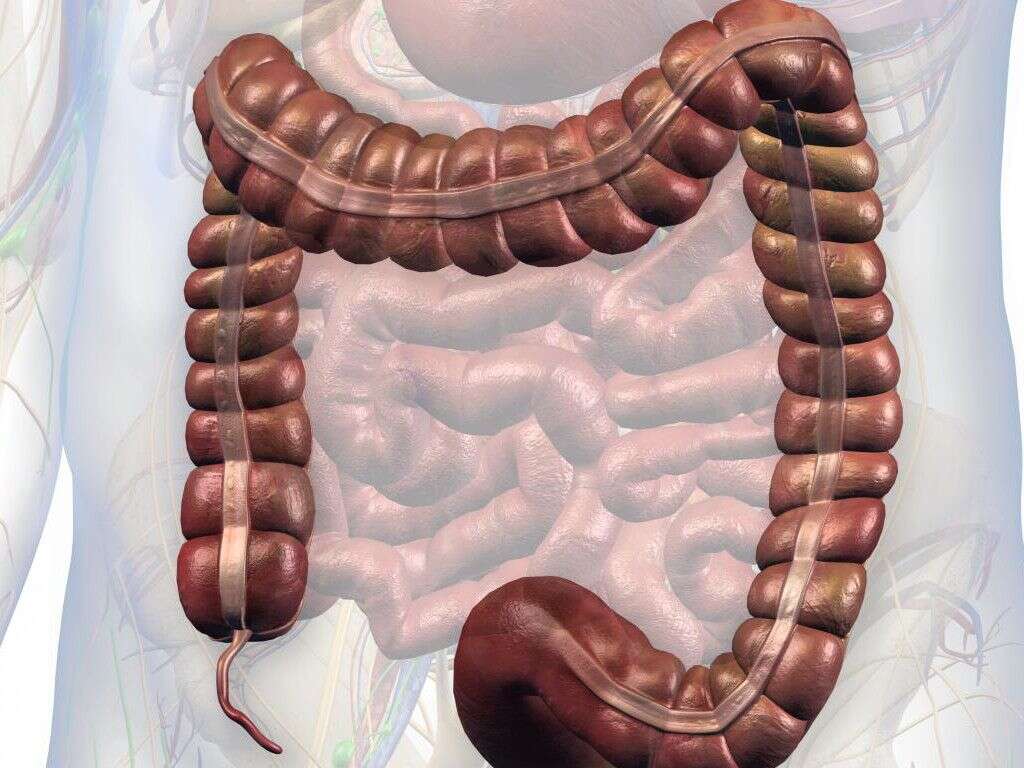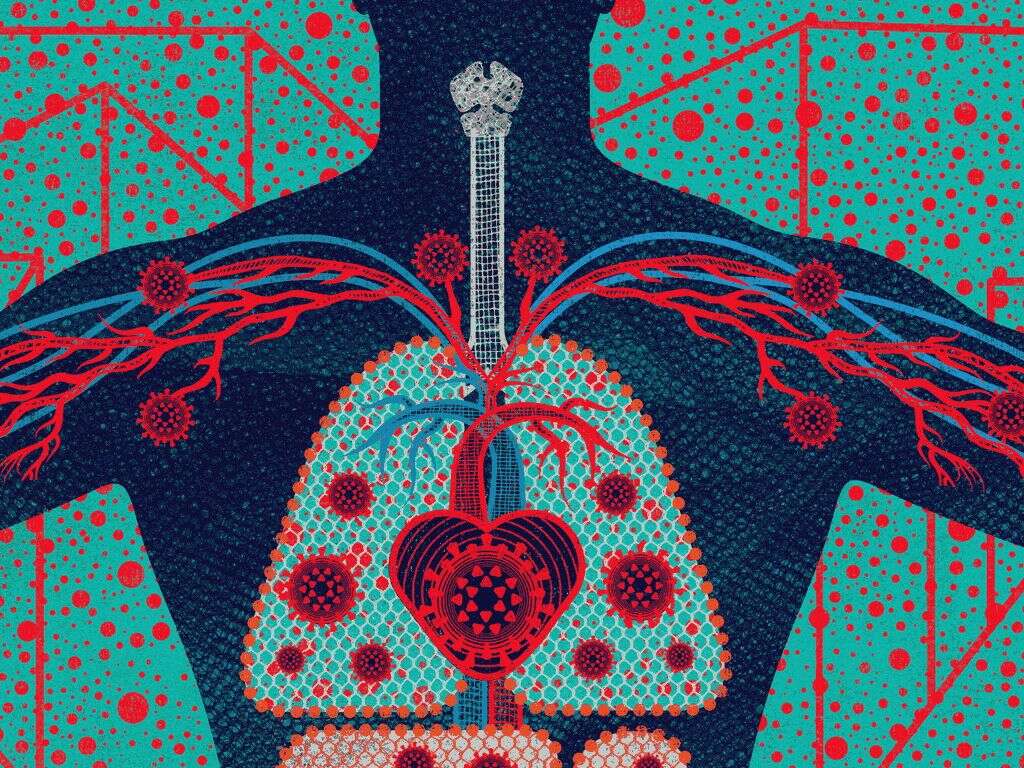10 Common Causes for Loss of Appetite
 Article Sources
Article Sources
- 1. Loss of Appetite By Jonathan Gotfried, et al. 'Loss of Appetite - Digestive Disorders.' Merck Manuals Consumer Version, www.merckmanuals.com/home/digestive-disorders/symptoms-of-digestive-disorders/loss-of-appetite
- 2. 'Understanding a Common Cold Virus.' National Institutes of Health, www.nih.gov/news-events/nih-research-matters/understanding-common-cold-virus
- 3. Publishing, Harvard Health. 'COVID-19 or Something Else?' Harvard Health, www.health.harvard.edu/staying-healthy/covid-19-or-something-else
- 4. 'Gastroenteritis | Stomach Flu.' MedlinePlus, U.S. National Library of Medicine, 23 Apr. 2021, medlineplus.gov/gastroenteritis.html
- 5. 'Ulcerative Colitis.' NHS Choices, www.nhs.uk/conditions/ulcerative-colitis
- 6. 'Food Poisoning Symptoms' Centers for Disease Control and Prevention, www.cdc.gov/foodsafety/symptoms.html
- 7. 'Scarlet Fever (for Parents) - Nemours KidsHealth.' Edited by Joanne Murren-Boezem, KidsHealth, kidshealth.org/en/parents/scarlet-fever.html
- 8. 'Identify Signs of Viral Meningitis.' Ada, ada.com/conditions/viral-meningitis
- 9. Simmons, W Kyle et al. 'Depression-Related Increases and Decreases in Appetite: Dissociable Patterns of Aberrant Activity in Reward and Interoceptive Neurocircuitry.' The American journal of psychiatry vol. 173,4 (2016): 418-28. doi:10.1176/appi.ajp.2015.15020162
- 10. Publishing, Harvard Health. 'The Lowdown on Thyroid Slowdown.' Harvard Health, www.health.harvard.edu/diseases-and-conditions/the-lowdown-on-thyroid-slowdown
- 11. 'Appetite Loss.' Cancer.Net, 20 May 2020, www.cancer.net/coping-with-cancer/physical-emotional-and-social-effects-cancer/managing-physical-side-effects/appetite-loss
- 12. Editors, ADDitude, and ADDitude Editors. 'When Meds Affect Appetite.' ADDitude, 14 Aug. 2019, www.additudemag.com/when-meds-affect-appetite
- 13. 'Hepatitis.' Cedars, Cedars-Sinai, www.cedars-sinai.org/health-library/diseases-and-conditions/h/hepatitis.html
Everyone should eat a healthy and balanced diet because food gives us the energy and nutrients we need to lead healthy and happy lives. However, almost everyone experiences a loss of appetite at some point in their lives.
It's not unusual for a person to not feel as hungry as they normally do, but if lack of appetite persists, it could be a signifier of a more serious condition. Loss of appetite experienced with other symptoms, such as fatigue, nausea or headache, could warrant a medical visit, as it can be caused by many conditions.1Loss of Appetite By Jonathan Gotfried, et al. ‘Loss of Appetite - Digestive Disorders.’ Merck Manuals Consumer Version, www.merckmanuals.com/home/digestive-disorders/symptoms-of-digestive-disorders/loss-of-appetite
Upper Respiratory Infections
Upper respiratory infections are a common cause of appetite loss. There are over 200 different viruses known to cause symptoms of the common cold, a condition that can lead to loss of appetite.2‘Understanding a Common Cold Virus.’ National Institutes of Health, www.nih.gov/news-events/nih-research-matters/understanding-common-cold-virus Flu can also cause digestive issues, such as nausea, vomiting and loss of appetite. Unlike the typical common cold, the flu is more likely to cause headaches and muscle aches.
Many conditions can cause appetite loss, so the symptom on its own shouldn't be reason for alarm. COVID-19 and other viral infections can also cause a lack of appetite.3Publishing, Harvard Health. ‘COVID-19 or Something Else?’ Harvard Health, www.health.harvard.edu/staying-healthy/covid-19-or-something-else
Gastroenteritis
Although it's considered a stomach flu, infectious gastroenteritis doesn't affect the stomach, and it isn't the flu. It's an infection brought on by parasites, a virus or bacteria that causes the intestinal lining to become inflamed. Viral gastroenteritis is the second most contracted illness in the United States.4‘Gastroenteritis | Stomach Flu.’ MedlinePlus, U.S. National Library of Medicine, 23 Apr. 2021, medlineplus.gov/gastroenteritis.html
People commonly develop viral gastroenteritis because of an infection with norovirus, which is spread via contaminated food and water or contact with infected people. Gastroenteritis usually isn't serious as long as patients consume plenty of fluids.

Ulcerative Colitis
Thought to be an autoimmune condition, ulcerative colitis causes the colon and intestines to become inflamed, which can result in many symptoms. Medical experts believe the condition may the result of the immune system mistakenly attacking tissue in the rectum or colon.5‘Ulcerative Colitis.’ NHS Choices, www.nhs.uk/conditions/ulcerative-colitis
Loss of appetite can be caused by ulcerative colitis and is commonly instigated by the presence of other signs and symptoms, such as stomach pain, diarrhea with blood or pus, rectal pain, fever, fatigue and weight loss.
Food Poisoning
Depending on the severity, food poisoning can cause an individual to experience many symptoms. Some symptoms, such as loss of appetite and mild nausea, aren't serious. However, more extreme cases of food poisoning can lead to dangerous symptoms, such as bloody diarrhea, nonstop vomiting or retching, high fever and dehydration.6‘Food Poisoning Symptoms’ Centers for Disease Control and Prevention, www.cdc.gov/foodsafety/symptoms.html
Loss of appetite can occur due to stomach cramps and nausea, which are characteristic of most cases of food poisoning. Food poisoning is caused by consuming contaminated foods with harmful bacteria or other microbes.

Scarlet Fever
Scarlet fever is a bacterial infection that develops in some individuals who had strep throat. Scarlet fever can lead to blindness and even death, if unmanaged. Spotting it in its earlier stages is paramount to getting the medical intervention needed. Typical symptoms include a red rash on the face that spreads to the trunk, arms, and legs and also fever and swollen glands in the neck.
Scarlet fever causes symptoms that can inhibit appetite, including stomachaches, a sore throat, fever, headaches and general nausea.7‘Scarlet Fever (for Parents) - Nemours KidsHealth.’ Edited by Joanne Murren-Boezem, KidsHealth, kidshealth.org/en/parents/scarlet-fever.html
Meningitis
Viral meningitis is a viral infection that affects membranes around the brain and spinal column called the meninges. Several viruses can cause the meninges to become inflamed.
While many cases of viral meningitis caused by enteroviruses are mild and resolve on their own, other microbes can cause extremely debilitating and dangerous complications without medical intervention. Headache, nausea, fatigue and loss of appetite are common with this condition, which occurs most often in children and people with weakened or impaired immune systems.8‘Identify Signs of Viral Meningitis.’ Ada, ada.com/conditions/viral-meningitis

Psychological Disorders
Loss of appetite can also be caused by some psychological disorders, such as depression and anorexia nervosa. Eating disorders, which are usually characterized as psychological disorders, can be extremely debilitating and severely impact a person's quality of life.
Depression can cause both an increase and decrease in appetite and is a common psychological cause of appetite loss. This may be due to depression altering the way the pleasure and reward centers of the brain functions.9Simmons, W Kyle et al. ‘Depression-Related Increases and Decreases in Appetite: Dissociable Patterns of Aberrant Activity in Reward and Interoceptive Neurocircuitry.’ The American journal of psychiatry vol. 173,4 (2016): 418-28. doi:10.1176/appi.ajp.2015.15020162
Hypothyroidism
When an individual has hypothyroidism, their thyroid doesn't produce enough hormones, which can affect nearly every process in the body. It primarily affects women between the ages of 35 and 65. Symptoms that can result from hypothyroidism include general fatigue, loss of appetite (yet the weight increases), dry skin and mild depression.
Once considered a much more serious condition, hypothyroidism can now be managed in most cases with synthetic hormones, such as levothyroxine.10Publishing, Harvard Health. ‘The Lowdown on Thyroid Slowdown.’ Harvard Health, www.health.harvard.edu/diseases-and-conditions/the-lowdown-on-thyroid-slowdown

Medication Side Effects
Medications can cause a host of side effects, especially loss of appetite. It's commonly seen in people who take stimulants for ADHD and ADD, such as Adderall and Ritalin.12Editors, ADDitude, and ADDitude Editors. ‘When Meds Affect Appetite.’ ADDitude, 14 Aug. 2019, www.additudemag.com/when-meds-affect-appetite
Stimulants aren't the only cause of appetite loss. Cancer patients using chemotherapy drugs often experience severe nausea, which can make them unwilling or unable to eat. Pain medication is also notorious for this side effect, including codeine and morphine.11‘Appetite Loss.’ Cancer.Net, 20 May 2020, www.cancer.net/coping-with-cancer/physical-emotional-and-social-effects-cancer/managing-physical-side-effects/appetite-loss
Hepatitis
Hepatitis is an inflammation of the liver that can lead to tissue death and organ failure. Initial symptoms are usually mild but can progress to a degree that's extremely unpleasant.
Loss of appetite can be mild or severe. There are various types of hepatitis, and loss of appetite can be a symptom of all of them. However, it can go away once the condition is managed properly, according to the underlying issue. Causes of hepatitis include viral infections, alcohol, drugs and toxins.13‘Hepatitis.’ Cedars, Cedars-Sinai, www.cedars-sinai.org/health-library/diseases-and-conditions/h/hepatitis.html










